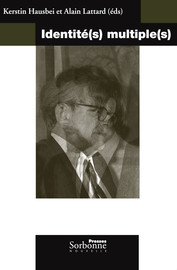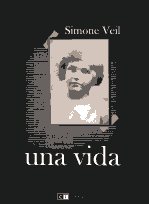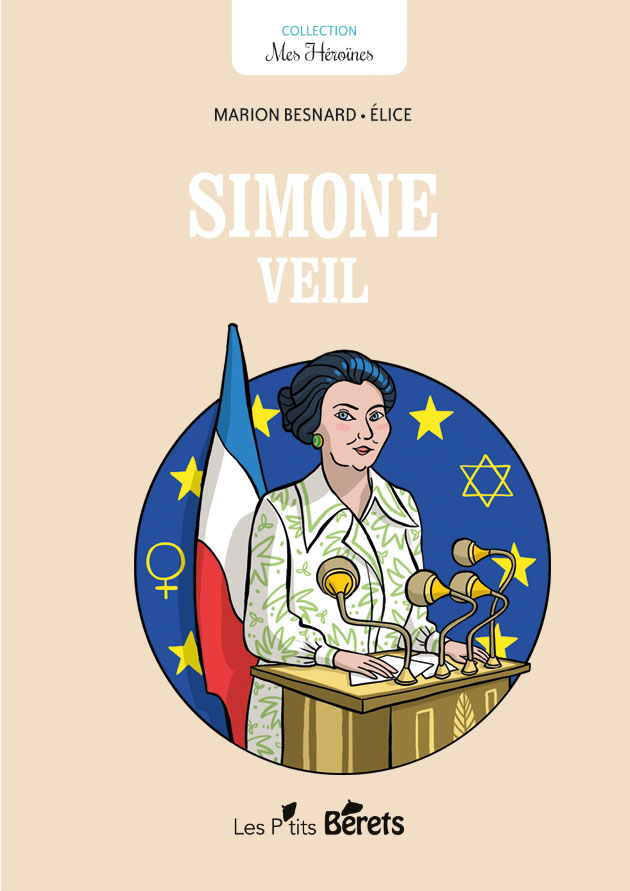
© European Union 2019 European Parliament Multimedia Center
Lawyer, politician and feminist, Simone Veil served as France’s Health Minister between 1974 and 1979. In that year she became a Member of the European Parliament and was elected its President, remaining in the role until 1982. This made her the President of the first directly elected Parliament and the first female President. Veil is recognised in France in particular for the legalisation of abortion and for improving the lives of women and the conditions of prisoners. She is also known across Europe for honouring and preserving the memory of Jewish people killed in the Holocaust during the Second World War, and for her commitment to European values and unity.
Simone Veil. Survivor, activist, feminist, politician; by Dr. Sasha Goldstein-Sabbah (Jewish Heritage Network); Europeana
As Jean d’Ormesson said in his speech welcoming Simone Veil to the Académie Française in 2010: "if one person incarnates the modern European experience, that person is Simone Veil", whose life reflects both high and low points of the 20th century.




Allocution de Simone Veil, Centre de Documentation Juive Contemporaine; Le Monde Juif; 1992; Volume 2 Numéro 145; pp. 202-205
The exhibition at Paris's Hotel de Ville features previously unpublished documents about the life of Simone Veil; Euronews; May 2021; 1:33
Breaking the Silence: A Testimonial of Resistance to Jewish Invisibility in Simone Veil’s Une jeunesse au temps de la Shoah; Nancy M. Arenberg; European Journal of Life Writing; Volume 10; 2021
Simone Veil had a remarkable career as a public figure in France, but her personal life was shrouded in profound trauma as a victim of the Holocaust. Veil’s autobiographical narrative reveals a unique form of testimonial writing in which she uses her agency, as a survivor, to demonstrate resistance to Jewish absence and ‘otherness’. As will be shown, a close study of the writer’s autobiography reveals a multilayered text in which the author acts as a spokeswoman for the victims to impart global awareness of the Shoah, especially to young people. This essay will focus on the pedagogical objective of Veil’s memoir, the impossibility of conveying unimaginable suffering, and the power of feminine solidarity as a survival strategy. The latter part of the analysis will broaden the perspective, with emphasis on how writing a testimonial narrative serves as a way in which the autobiographer can recover the shattered self.
Simone Veil, European political pioneer; Philippe Perchoc; EPRS; At the Glance; July 2022
Simone Veil, the first President of the directly elected European Parliament in 1979, and the first woman to hold the office, died on 30 June 2017, at the age of 89. A prominent French public figure beyond her years in office, she leaves an important and enduring legacy. This is an update of an 'At a glance' note from July 2017.
« For the women » ‐ In Memoriam Simone Veil (1927–2017); Charles Barthold, Hervé Corvellec; Gender, Work & Organization; 2018; Volume 25; Issue 6; pp. 593-600
This In Memoriam presents the life of Simone Veil, an influential French politician, remembered for a law that made abortion legal in 1974. Simone Veil's contribution to the rights of women is featured as an instance of parrhesia (Foucault, 2011) that was able to establish a new regime of truth about the body, sexuality, and reproductive capacities of French women.
Virtual Exhibition - The women behind Europe; Institute Jacques Delors; 2021
Sémantique de la controverse : analyse d’un fragment du discours de Simone Veil à l’Assemblée nationale en 1974, Alfredo Lescano, Argumentation et Analyse du Discours; 2015; Volume 15
La plupart des textes participant des controverses relèvent des textes « argumentatifs », ce qui impliquerait que leur analyse devrait mettre l’accent sur leur portée persuasive. Or paradoxalement, on constate souvent que ces textes n’ont justement pas pour fonction centrale d’agir sur des individus, mais sur l’espace public. Il s’impose donc d’étudier les opérations effectuées par les textes de controverse dans cet espace, ainsi que de caractériser ce dernier. Dans ce travail, on mobilisera un cadre d’analyse qui partant de ces constats, saisit l’espace de la controverse dans son organisation conceptuelle, et attribue aux énoncés, à partir d’une description sémantique, des opérations sur cet espace. Ce cadre sera appliqué à un fragment de l’allocution de Simone Veil à l’Assemblée Nationale en 1974, qui occupe une place décisive dans la controverse autour de l’avortement qui a eu lieu en France dans les années ‘70. On se propose plus particulièrement de décrire la façon dont la paire « pourquoi – parce que » contribue à construire l’espace de la controverse.
Pour mémoire : retour à Auschwitz avec Simone Veil; Alain Genestar; Témoigner. Entre histoire et mémoire; 2019; Numéro 128
Un an après le décès de Simone Veil, les éditions Grasset publient Pour mémoire : Retour à Auschwitz avec Simone Veil, un ouvrage d’une septantaine de pages que l’on doit à Alain Genestar. L’ouvrage repose sur le retour à Auschwitz-Birkenau de Simone Veil en compagnie de ses proches à l’occasion du 60e anniversaire de la libération du camp de concentration. L’auteur de ce petit livre, au titre sobre et concis, reprend l’intégralité de l’interview exclusive que Simone Veil lui a accordée après ce pèlerinage.(...)
Réinventer l’institution parlementaire européenne, Simone Veil et les premiers élus au suffrage universel direct; Aurélie Élisa Gfeller ; Culture et conflits, 2012; Numéros 85-86
Cet article offre un éclairage sur la réinvention de l’institution parlementaire communautaire à la suite de l’introduction du suffrage universel direct en 1979. Il analyse la stratégie discursive des élus et de leur présidente, Simone Veil, qui firent valoir leur nouvelle légitimité démocratique pour asseoir leur autorité face aux fractions des élites européennes associées aux autres institutions communautaires ou à d’autres institutions transnationales. Il montre aussi comment les nouveaux élus mobilisèrent diverses ressources pour renforcer leur stratégie de légitimation : leurs compétences budgétaires limitées, mais aussi les visites et voyages officiels orchestrés par leur présidente et leur engagement sur un thème porteur dans l’opinion, les droits de l’Homme.
La grande aventure, c'est d'avoir su faire l'Europe; Simone Veil et Jean Garrigues; Parlement[s]; Revue d'histoire politique; 2004; Volume 1; Numéro 1; pp. 6-15
Louise Weiss et quelques autres : candidates et élues gaullistes au Parlement européen (1979-1989) ; Yves Denéchère ; Histoire@Politique : revue du Centre d’histoire de Sciences Po; 2012; Volume 17
The decision to elect representatives to the European Parliament through universal suffrage, starting in 1979, was a novelty that did not please the Gaullists in the least. Nevertheless, Jacques Chirac's RPR mounted a campaign despite its lack of real interest in the European election. Fifth on the Gaullist list, Louise Weiss, "citizen of Europe", ensured that the RPR could claim at least one genuine European advocate amidst candidates who intended to defend the interests of France above all. The turnstile of candidates established by the RPR showed what little importance it accorded to this vote. After managing to remain on the constantly-changing election lists of 1984 and 1989, some Gaullist women were elected but it was clear that they did not play a major role in the assembly in Strasbourg.
Simone Veil, la déportation et la Shoah; Henri Ménudier in :
 Identité(s) mutiple(s)
by
Identité(s) mutiple(s)
by
Simone Veil, pionnière politique européenne; Philippe Perchoc; EPRS Members' Research Service, 2017
Le 17 juillet 1979, Simone Veil était élue Présidente du Parlement européen par ses pairs. Son élection était un jalon dans le processus d'intégration européenne, étant la première femme Présidente du Parlement, qui avait été, pour la première fois, été élu directement par les citoyens.
Podcast - France Culture - Grande traversée : Simone Veil, pour mémoire - 5 episodes, French
The Parlamentarium Simone Veil - European Parliament Strasbourg
With a dynamic and interactive approach, the Parlamentarium is an immersive experience that shows the work of the European Parliament and how it impacts the lives of citizens.
Simone Veil Prize of the French Republic
The Simon Veil Prize honours people from around the world who are fighting for women’s causes, thereby continuing Simone Veil’s fundamental engagement. Its main purpose is to showcase action to end violence and discrimination against women, improve their access to education and knowledge, promote their autonomy – first and foremost their economic autonomy and their opportunities for entrepreneurship – and their participation in leadership roles. On 8 March 2018, the Minister for Europe and Foreign Affairs announced the creation of this Prize. France intends to show its support for the rights of women from around the world, and promote gender equality, France’s big national cause for the five-year term and one of its priorities internationally, which can be seen in France’s international strategy on gender equality (2018-2022).
The Prize is awarded every year on 8 March on International Women’s Day, which was created by the United Nations, along with €100,000 to finance action in the field that is conducted or recommended by the Prize winner.
Politician and Lawyer Simone Veil’s extensive history of social contribution, particularly her championing of human rights and raising the status of women, and enormous contribution to advancing world peace is the very embodiment of Meiji University’s founding philosophy of “Rights, Liberty, Independence and Self-government” over the past half century.
The Simone Veil Research Centre at Ben-Gurion University of the Negev (BGU) develops joint research projects with European research institutions, organises international conferences and workshops and brings contemporary European culture to BGU through seminars, films, and talks by distinguished European figures.
Shaping European Union: The European Parliament and Institutional Reform, 1979-1989; Dr Wolfram Kaiser, University of Portsmouth, European Parliament, EPRS Study; 2018
Reproductive Politics in Twentieth-Century France and Britain; Jesse Olszynko-Gryn and Caroline Rusterholz; Journal of Medical History; 2019 Volume.63; Numéro 2; pp. 117–133
Shattering certainties - Permanent Exhibition
Milestones of European Integration II
1979 – a historic occasion for increased democracy in Europe, with the first direct elections to the European Parliament by citizens of the Member States. No longer would this important assembly be selected by national parliaments; it was now the first international body directly elected by universal suffrage.
 Una vida
by
Sobreviviente del horror de Auschwitz y del nazismo que destruyó a su familia, Simone Veil dedicó su vida a la lucha contra la discriminación y la intolerancia, y a favor de los derechos de la mujer y por la construcción de la unidad europea, para ella una garantía de la paz mundial. Responsable en Francia de la despenalización del aborto (Ley Veil), en 1979 presidió el primer Parlamento Europeo surgido del voto universal directo y en 2010 se convirtió en la sexta mujer de la historia que entra en la Academia Francesa. Después de mucha espera y reflexión, Veil aceptó contar su vida en primera persona. Y en este libro, que es el fruto de esa decisión y que ya vendió en Francia cerca de un millón de ejemplares, se muestra como es: valiente, apasionada, librepensadora. Una vida es el relato conmovedor de una mujer extraordinaria que atraviesa buena parte de un siglo que la humanidad no olvidará.
Una vida
by
Sobreviviente del horror de Auschwitz y del nazismo que destruyó a su familia, Simone Veil dedicó su vida a la lucha contra la discriminación y la intolerancia, y a favor de los derechos de la mujer y por la construcción de la unidad europea, para ella una garantía de la paz mundial. Responsable en Francia de la despenalización del aborto (Ley Veil), en 1979 presidió el primer Parlamento Europeo surgido del voto universal directo y en 2010 se convirtió en la sexta mujer de la historia que entra en la Academia Francesa. Después de mucha espera y reflexión, Veil aceptó contar su vida en primera persona. Y en este libro, que es el fruto de esa decisión y que ya vendió en Francia cerca de un millón de ejemplares, se muestra como es: valiente, apasionada, librepensadora. Una vida es el relato conmovedor de una mujer extraordinaria que atraviesa buena parte de un siglo que la humanidad no olvidará.
 Simone Veil
by
Simone Veil est morte le 30 juin 2017, sa famille a perdu une mère et une grand-mère adorées. Les Français ont, eux, perdu et salué l'une de leurs personnalités préférées, icône de courage et de droiture. Des camps de concentration à la présidence du Parlement Européen, Simone Veil n'a eu de cesse de se battre pour les libertés et l'égalité.
Simone Veil
by
Simone Veil est morte le 30 juin 2017, sa famille a perdu une mère et une grand-mère adorées. Les Français ont, eux, perdu et salué l'une de leurs personnalités préférées, icône de courage et de droiture. Des camps de concentration à la présidence du Parlement Européen, Simone Veil n'a eu de cesse de se battre pour les libertés et l'égalité.
 Simone Veil : destin
by
Issue d'une famille juive française et républicaine, Simone Jacob est éprouvée très tôt par le destin lorsque la barbarie nazie la conduit, avec sa mère et sa soeur aînée, ô Auschwitz. Mariée et mère de famille, sa vie publique commence au ministère de la Justice. Confrontée aux atrocités de la guerre d'Algérie, elle participe au sauvetage des prisonnières. De la cause des femmes, elle fait ensuite son combat: ministre de la République, elle obtient en 1974 la légalisation de l'avortement... Retracer le destin tragique et superbe de Simone Veil, c'est avant tout comprendre l'histoire de ce siècle.
Simone Veil : destin
by
Issue d'une famille juive française et républicaine, Simone Jacob est éprouvée très tôt par le destin lorsque la barbarie nazie la conduit, avec sa mère et sa soeur aînée, ô Auschwitz. Mariée et mère de famille, sa vie publique commence au ministère de la Justice. Confrontée aux atrocités de la guerre d'Algérie, elle participe au sauvetage des prisonnières. De la cause des femmes, elle fait ensuite son combat: ministre de la République, elle obtient en 1974 la légalisation de l'avortement... Retracer le destin tragique et superbe de Simone Veil, c'est avant tout comprendre l'histoire de ce siècle.
Books can be consulted upon request (sent to Library@europarl.europa.eu) at:
Info Hub Brussels
Esplanade Solidarność 1980,
B-1050 Brussels, Belgium
From Monday to Friday 9:00-18:00
+32 2 28 48077
EP Library catalogue will give you access to a large multilingual collection of information sources, focusing on European policies, law, economics and international relations. Find search results (open access) related to the subject of this guide.
By installing the Citizens' App, you’ll learn who does what in the EU, how all of this is relevant to your daily life and what challenges the EU faces, many of which will shape your future.
Have a question? Then simply contact the Ask EP service, which will try its best to provide an answer about the activities, powers and organisation of the European Parliament.
*Except for some images